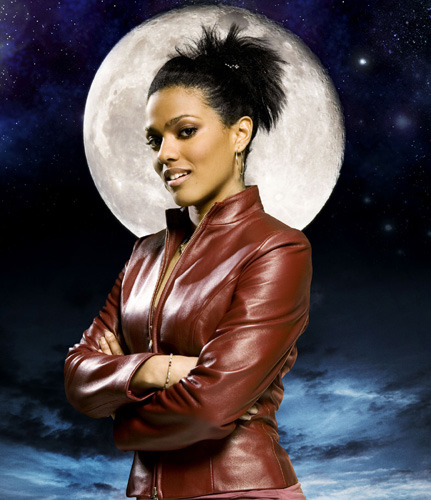My other big cultural experiences in this half of the year involve live performance. I was one of the lucky ones who got Kate Bush tickets for this autumn. I aimed for the later performances, using the logic that, in the brief booking window available online, the pressure would be on the earlier dates. 30th September, then, is Kate Day, and I literally have no idea what to expect from what is rumoured to be a 'theatrical' show at the Hammersmith Odeon. I had thought I would never get to see this woman live at all - the prospect of seeing an actual performance by someone so closely bound-up with my angst-filled teenage years is producing quite a mixture of emotions.
 I hardly ever get to the theatre these days - but I grabbed a rare opportunity to arrange a birthday outing for my wife, a keen member of the Richard Armitage Appreciation Society, to see the man himself in action in The Crucible at The Old Vic. Highly recommended if you get the chance. (It closes on 13th September.) I'd only ever seen the play once before, and I remember it being delivered in quite restrained, buttoned-up fashion. This production by Yael Farber is visceral, full-on and very shouty, and performed with complete conviction by the cast. Stage and TV veteran William Gaunt had a good few show-stealing tragicomic lines, while among the newer and younger actors, we should expect to see interesting things from Marama Corlett in future. The only disappointment (mainly for the ladies in our party) was that Mr. Armitage was unable to come out and sign autographs after the matinee, but that's understandable after a performance of such intensity, especially with another to get through a couple of hours later!
I hardly ever get to the theatre these days - but I grabbed a rare opportunity to arrange a birthday outing for my wife, a keen member of the Richard Armitage Appreciation Society, to see the man himself in action in The Crucible at The Old Vic. Highly recommended if you get the chance. (It closes on 13th September.) I'd only ever seen the play once before, and I remember it being delivered in quite restrained, buttoned-up fashion. This production by Yael Farber is visceral, full-on and very shouty, and performed with complete conviction by the cast. Stage and TV veteran William Gaunt had a good few show-stealing tragicomic lines, while among the newer and younger actors, we should expect to see interesting things from Marama Corlett in future. The only disappointment (mainly for the ladies in our party) was that Mr. Armitage was unable to come out and sign autographs after the matinee, but that's understandable after a performance of such intensity, especially with another to get through a couple of hours later!This linguistic pondering ties in with the fact that the book I am writing at the moment involves taking some difficult decisions about how, and when, characters in the future might swear convincingly - will today's colourful Anglo-Saxon have bitten the dust, or will it just have become as harmless as 'flipping'? Even Doctor Who companions are allowed to say 'bloody' these days, Freema Agyeman taking a bow as the first sweary companion in the episode 'Smith and Jones' all the way back in 2007. That would have had Mary Whitehouse reaching for the smelling salts back in 1977. (For younger readers of this blog, Mary Whitehouse was an interfering lady in horn-rimmed spectacles who headed the 'National Viewers' and Listeners' Association', an organisation spiritually comfortable with the values of the Daily Mail. She would frequently write to the Director General about how she was so horrified by all the filth on TV that she just had to keep watching to make sure it was as disgusting as she had imagined.)
Both futuristic fiction and historical fiction are fraught with these linguistic pitfalls. (Ironically, getting contemporary slang right is easier than it has ever been, thanks to that universal tool for embarrassing your teenagers by being able to decode their language, Urban Dictionary.) I expect many people have had the experience of watching period dramas with older relatives, who tut and sigh and point out that a character in, say, Foyle's War or Miss Marple would not have done or said such-and-such a thing in the 1940s or 1950s? And that the script 'must have been written by someone who wasn't alive at the time'? (Well, that much is true - there aren't many TV scriptwriters in their 70s and 80s.) I often wonder how they know for sure, though - given that, even in early middle-age, my own memory of what people might have said and done in the 1980s and 1990s is not exactly 100% reliable. When exactly in the 1990s did the fad for 'rad' come in? (Post-Ninja Turtles, but would it have been widespread in 1990?) How far outside Manchester would someone have said 'sorted' or 'nice one' in, say, 1993, before Oasis went stellar? If a film set in 1987 featured a character saying 'Eat My Shorts', would I be confident enough in myself to assert that this was 'wrong' - or would I be more likely to assume that, just because I hadn't heard it at the time, that didn't mean nobody said it? (The Simpsons first appeared as a short feature on The Tracey Ullman Show in April 1987.)
So I find myself watching 'historical' TV set in my lifetime (like the recent Philip Glenister drama From There To Here) with my 'spot the anachronism' head on, which probably isn't healthy. Now that people born in the 1980s are writing about them as a historical period, there will no doubt be a lot more of this. What writers can be sure of is that, if they get it wrong, there will be someone, somewhere, willing to write them an outraged letter telling them about it...



No comments:
Post a Comment